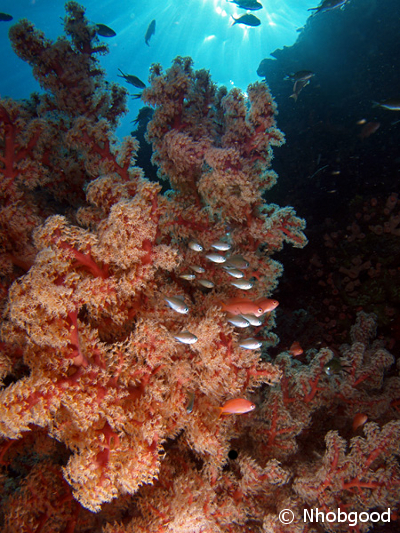
Warnings about the environmental problems in the oceans have been circulating for a number of years. A new report, however, has brought to light that the catastrophic changes that were predicted are happening much quicker than what we thought; making the need for action a more immediate one. The report was born of a workshop of world experts lead by The International Program on the State of the Ocean (IPSO) and The International Union for Conservation of Nature.
The report notes that our current activities are at high risk of causing a globally significant extinction event in the ocean. “As we considered the cumulative effect of what humankind does to the oceans, the implications became far worse than we had individually realised”. Said Alex Rogers IPSO’s Scientific Director.
We are experiencing severe declines to the point that we now face losing entire ecosystems, such as coral reefs, within a single generation.
It is the combination of factors that has accelerated this crisis by increasing the stress on the system as a whole. Elevated temperature and nutrients from fertilizers and sewage are causing algae blooms; leading to suffocation of other organism in the environment and causing dead zones around areas of high population density. We are extracting too much fish and removing top predators, which throws the ecosystem out of balance and makes it less resilient to change. The current CO2 being absorbed is already far greater than during the great extinction of marine species 55 million years ago making the ocean more acidic. The effects of the CO2 levels combined with the chemical pollution alone can reduce the resilience of the ocean by as much as 40%. The reduction in resilience is equivalent to an immune deficiency for a human. While a healthy person will normally survive an attack of the flue, someone with an immune deficiency might not. The current state of the oceans’ means any further stresses have a exponential effect.
Ocean acidification, global warming, local pollution and overfishing are combining and pushing corals and reefs beyond the point of no return. At least one fourth of reefs have already died. Another third is in imminent danger. There are not only over 9 million species associated with coral reefs, but reefs support tens of millions of people around the world on a day to day basis. They provide people with several services from food to shore protection.
Considering the food crisis that the current rate of population growth is likely to cause, destroying an incredible resource such as the ocean is out of the question. The timeline for action has shrunk, these are some of the proposed solutions:
- Reduce CO2 emissions and increase measures that mitigate atmospheric CO2
- Restore structure and function of the marine ecosystem by:
- Stop exploitative fishing.
- Set up protected areas around the world representing the various ecosystems.
- Prevent, reduce and strictly control harmful and toxic substances, as well as sewage and runoff going into the oceans.
- To, at the very least, strictly regulate oil gas and mineral extractions and to try to reduce or eliminate these.
- Implement the precautionary principle so that activities must prove no harm to the ocean in order to be permitted.
- To have the UN Security Council and UN General Assembly govern the High Seas.
While politically challenging, many of these solutions are simple. If we, for example, extract fish at a sustainable rate then there might be fish available to feed the billions of people on earth in the coming years. Most of these challenges are in the hands of governments and international organizations, yet small actions by individuals, such as only purchasing sustainably caught fish, can show that people are willing to support a change in the way we use and treat our oceans. Visit Project Ocean to find out what you should and should not buy Https://www.selfridges.com/en/StaticPage/ProjectOcean/#/Fish
Source: Multiple Ocean Stresses Threaten “Globally Significant” Marine Extinction. June 21, 2011